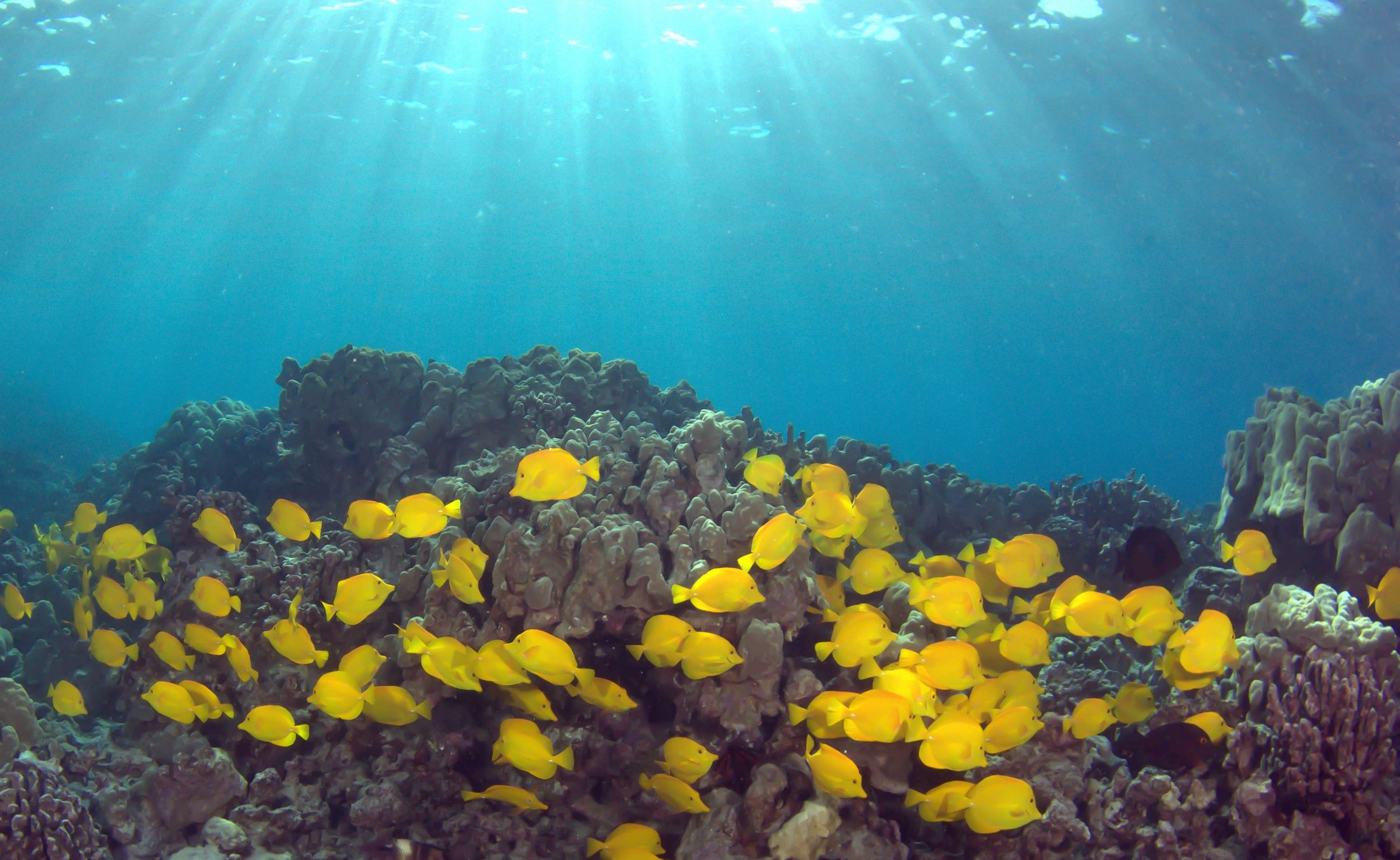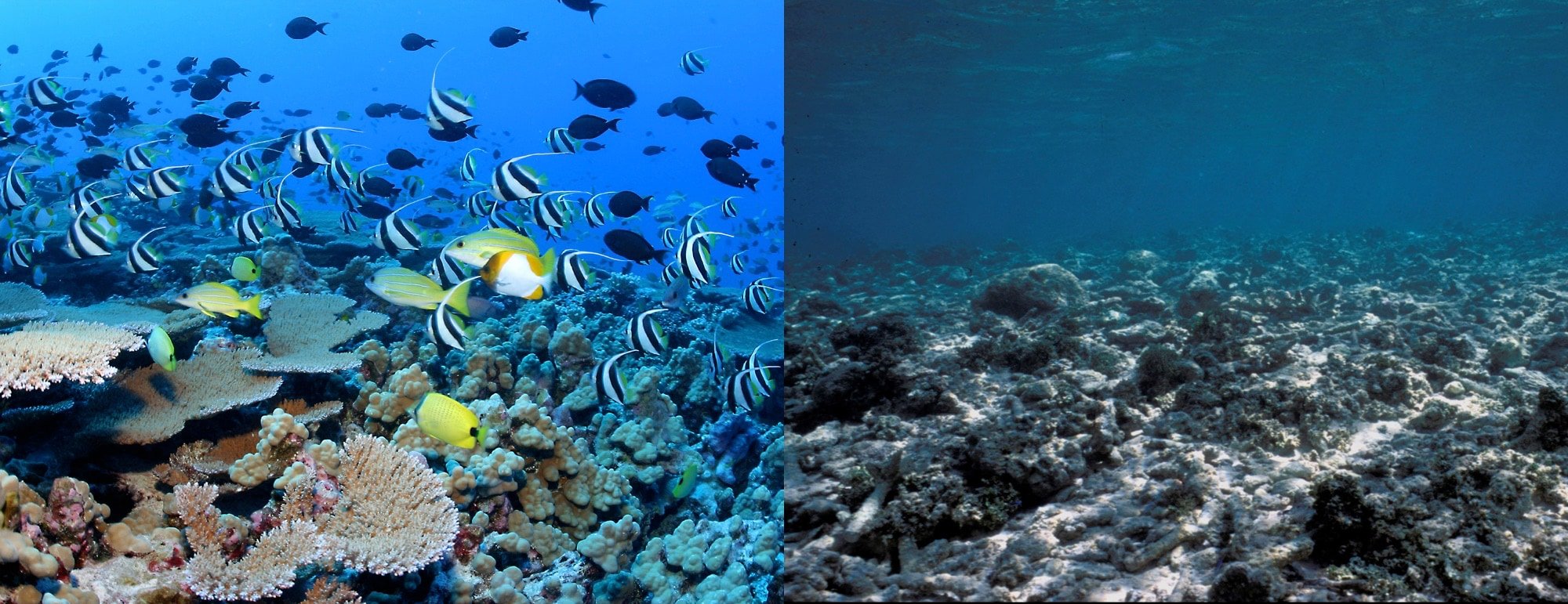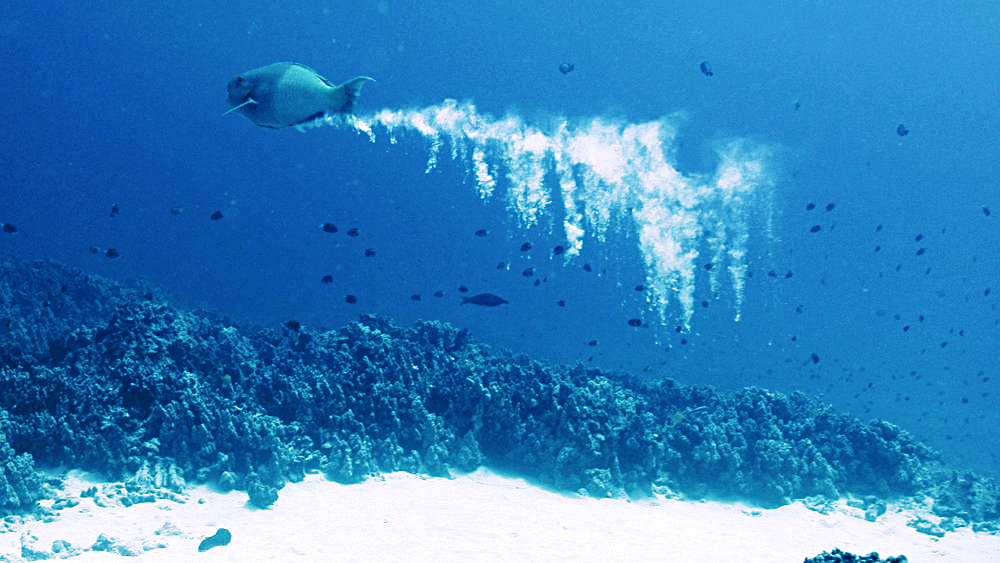
Herbivores and reef health.
How and what
we fish matters.
Hawaiʻi is blessed with coral reefs that feed us, protect our coasts from erosion, provide many recreational and employment opportunities, and are increasingly a source of new medicines. When coral dies for any reason, it is replaced by either new coral or by seaweeds. If seaweeds prevail, then the reef dies and the fish leave. But if corals remain healthy, they will continue to grow and become more resilient to other major stressors such as ocean pollution and coral bleaching.
Herbivores such as uhu (parrotfish) eat the seaweeds, acting as lawnmowers for the reef, keeping the coral clean, healthy and resilient.
FUN FACT:
In Hawaiian, uhu means “diarrhea” because these fish constantly poop sand.
We can help keep Hawaiʻi’s coral reefs stay alive and beautiful by not taking too many of these fish, especially uhu. More of these lawnmowers means more healthy coral. Healthier coral means more shelter and food for all fish… and more fish means better fishing for all!
Win-win-win.
Fish pono. Save our reefs… and beaches.
Uhu are especially unique amongst reef herbivores because they spend more time than other fish feeding on algae. (About 90% of their day. They’re real pigs…. though they look like parrots with their beak-like teeth and bright colors.) As they gnaw, they also ingest bits of dead coral that goes through their digestive system and comes out as sand. In one year, a single large uhu can poop a whopping 1,000 lbs. (450 kg.) of sand, the weight of a grand piano. While that sounds like a lot of parrotfish poop — and it very much is — it’s badly needed here in Hawaiʻi.
Everybody poops. Not everybody can poop sand!
In the last 100 years, 17 miles of Oʻahu beaches have been lost from erosion. Even greater loses are reported on Maui. And much more could disappear in the next 30 years. As sea levels continue to rise, having plenty of these sand-producing fish will help to save our beaches.
Still wanna know more? Reef health FAQ.
-
Our informal hui of ocean lovers believes that too few members of the general public, the fishing community, policymakers, and politicians understand the critical link between healthy herbivore populations and healthy coral reefs. Herbivores are seen as just other fish, rather than as the extremely important living lawnmowers that allow corals to flourish.
-
Herbivores, both vertebrates and invertebrates, are fishes and sea urchins that eat seaweeds (benthic algae in scientific jargon). Prominent vertebrate herbivorous fishes include parrotfishes (uhu), surgeonfishes (manini, kole, etc.), chubs (nenue), and others. Different species often eat different seaweeds in different ways.
-
As the living lawnmowers of the sea, herbivores keep reef surfaces clean so corals can flourish. Herbivores are especially important after coral dies because growth of new corals depends on the dead coral not being overgrown by seaweeds. When there are few herbivores, seaweeds overgrow and smother corals, as well as prevent new coral from colonizing. When the corals die, the reef will die and collapse, and the fish will leave, so everyone loses.
-
It takes many herbivores of many different kinds to keep a reef healthy. Unfortunately, many species of herbivore, especially parrotfishes (uhu), are terribly overfished around the more populated Hawaiian Islands. So, even if herbivores are present, they are currently not abundant or diverse enough to keep the reef clean.
-
Fish pono! Please take only 1 or 2 parrotfish (uhu) on any outing, and only a few surgeonfish (manini, kole, etc.). Better yet, take only the many fish that are not herbivores. Call-out those who overfish herbivores, especially using SCUBA and at night when uhu sleep. By helping herbivore populations replenish, you can be the hero who saves our reefs.
-
Eat pono! There are many tasty fish that are not herbivores. Ask your fish market and your restaurants to stop serving parrotfish (uhu) and other herbivores. And spread the word. As Brian Kealana says, by helping herbivore populations replenish, “you too can be the hero who saves our reefs.”



